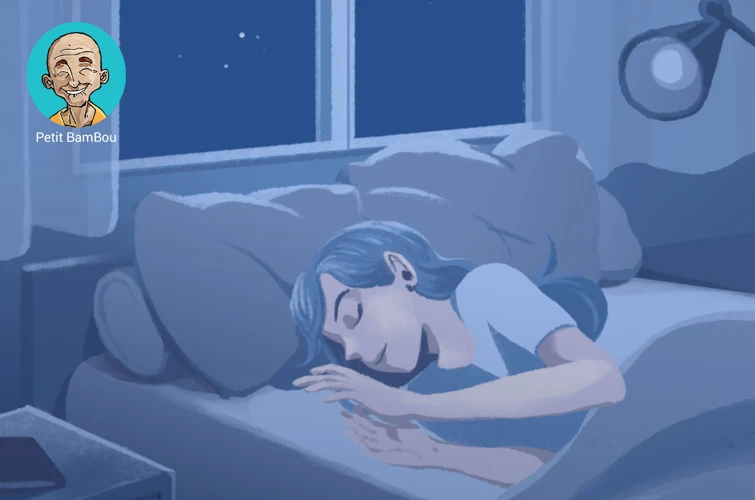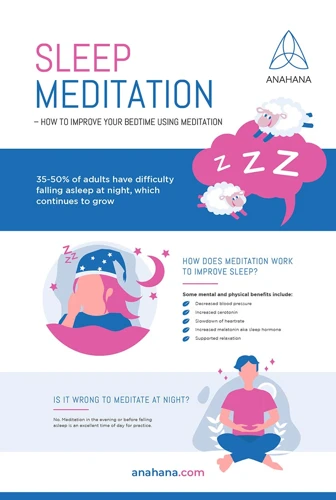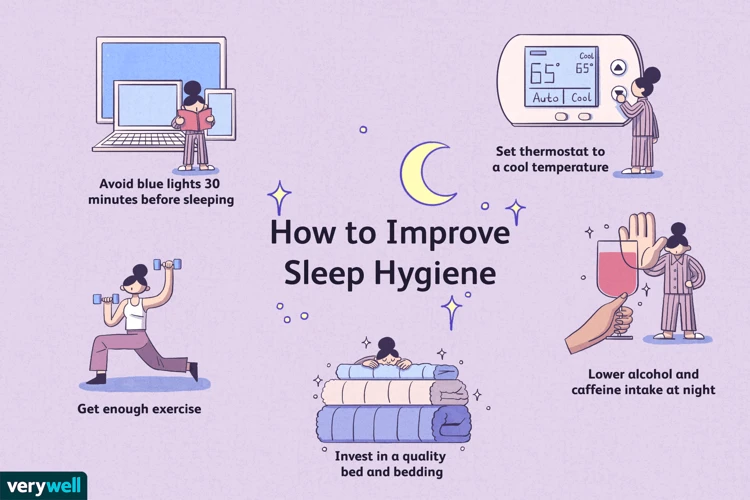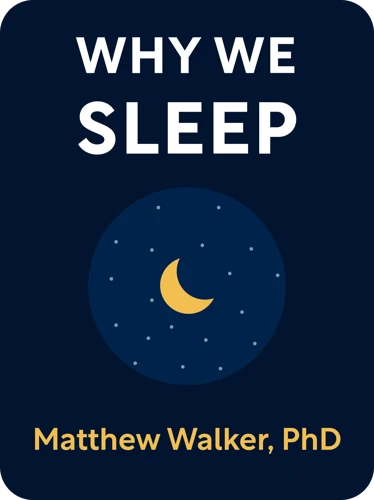As we go through our daily lives, we often forget how important it is to get a good night’s sleep. Our busy schedules and constant screen time can leave us feeling anxious and restless at bedtime. Luckily, there is a simple practice that can help us achieve a deeper, more restful sleep: meditation. While the idea of incorporating meditation into a bedtime routine may seem daunting at first, the benefits it offers are too great to ignore. In this article, we will explore the science behind how meditation can improve sleep quality, techniques for incorporating meditation into your routine, tips for creating the ideal sleep environment, and the long-term benefits of consistent meditation practice. So, put on your pajamas and let’s unlock the benefits of meditation for a good night’s sleep.
The Science of Sleep and Meditation

Getting enough quality sleep is essential for maintaining good physical and mental health. Unfortunately, for many people, the stresses of modern life can impede their ability to fall asleep or stay asleep throughout the night. This is where meditation comes in. Meditation has been found to have numerous benefits for both sleep and overall wellness. Let’s explore the science behind sleep and meditation to understand how they are related and how incorporating meditation into your bedtime routine can lead to a better night’s sleep.
The Effects of Sleep Deprivation
Sleep is an essential component of maintaining good health and well-being. However, when we fail to get enough sleep, the consequences can be detrimental to our physical and emotional health. Below are some of the effects of sleep deprivation:
- Impaired cognitive function: Lack of sleep can negatively impact our ability to concentrate, reason, and make decisions. This can lead to mistakes at work or school and affect our overall productivity.
- Increase in stress: Poor sleep can cause our bodies to produce more stress hormones, which can lead to increased feelings of anxiety and irritability.
- Weight gain: Sleep deprivation can disrupt the hormones that regulate hunger and metabolism, leading to an increase in appetite and a greater likelihood of overeating.
- Weak immune system: When we don’t get enough rest, our immune system is weakened, making us more susceptible to illnesses and infections.
- Decreased mood: People with insufficient sleep tend to experience negative emotions more intensely, leading to feelings of sadness, irritability and frustration.
In order to avoid these negative consequences of sleep deprivation, it is important to establish healthy habits that promote restful sleep. Meditation is a powerful tool that can be used to improve sleep quality and reduce the negative effects of sleep loss.
How Meditation Improves Sleep Quality
Meditation has been found to be a simple yet effective way to improve sleep quality. Here are some ways in which meditation can positively impact your sleep:
| Reduces Stress | Calms the Mind |
|---|---|
| Stress is a major cause of sleep problems. Meditation helps to reduce the levels of stress hormones, such as cortisol and adrenaline, in the body. When we meditate, we activate the parasympathetic nervous system, which is responsible for the body’s relaxation response. This induces a state of calmness and reduces stress levels, making it easier to fall asleep. | During meditation, we learn to focus on the present moment and let go of the incessant stream of thoughts that can keep us up at night. This helps to calm the mind and prevent overthinking, which can lead to anxiety and insomnia. |
| Increases Melatonin | Improves Circadian Rhythm |
| Melatonin is a hormone that helps regulate sleep-wake cycles. Meditation has been found to increase melatonin levels, making it easier to fall asleep and stay asleep throughout the night. | The circadian rhythm is the body’s internal clock that regulates sleep and wakefulness. Meditation has been found to improve the functioning of the circadian rhythm, helping to promote healthy sleep patterns. |
Meditation can also improve overall relaxation, reduce muscle tension, and increase feelings of well-being, all of which contribute to better sleep quality. By incorporating meditation into your bedtime routine, you can unlock these benefits and enjoy a more restful and rejuvenating night’s sleep.
Techniques for Incorporating Meditation into Your Bedtime Routine

If you struggle to fall asleep at night or find yourself feeling restless throughout the night, incorporating meditation into your bedtime routine may be the solution you’ve been searching for. Meditation techniques can help soothe the mind and body, calming the nervous system and easing anxious thoughts that can keep you up at night. Additionally, meditation has been shown to improve sleep quality, making it an effective tool for those who suffer from insomnia or other sleep disorders. Whether you’ve never meditated before or are a seasoned practitioner, there are several techniques you can try to help promote a restful night’s sleep.
Mindfulness Meditation
One of the most popular forms of meditation is mindfulness meditation. Mindfulness meditation involves being present and aware in the moment, without judgment or distraction. This can be especially helpful when trying to calm an overactive mind before sleep.
To practice mindfulness meditation, find a quiet and comfortable place to sit. Begin by focusing on your breath, taking deep and slow breaths in through your nose and out through your mouth. As you inhale, notice the sensation of the air entering your nostrils and filling your lungs. As you exhale, pay attention to the sensation of the air leaving your body.
If your mind starts to wander, which is natural, gently bring your attention back to your breath. You can also focus on any physical sensations in your body, such as the feeling of your feet on the ground or your hands resting on your lap.
As you continue to meditate, be aware of any thoughts or emotions that come up, but try to let them pass without getting too caught up in them. Over time, regular mindfulness meditation can help reduce stress and anxiety, leading to more restful sleep.
Other mindfulness practices that can be incorporated into your bedtime routine include journaling and gratitude exercises. Taking a few moments to write down your thoughts or jot down things you are grateful for can help clear your mind and bring about a sense of calm before sleep.
Deep Breathing Exercises
Deep breathing exercises before bed can help calm your mind and prepare your body for a restful night’s sleep. Try the following techniques to incorporate deep breathing into your bedtime routine:
- Belly Breathing: Lie on your back with one hand on your belly and the other hand on your chest. Inhale deeply through your nose, allowing your belly to rise as you fill your lungs with air. Exhale through your mouth, pushing all the air out of your lungs as your belly falls. Repeat for several minutes, focusing on the rise and fall of your belly with each breath.
- Alternate Nostril Breathing: Sit comfortably with your spine straight and your eyes closed. Close your right nostril with your right thumb and inhale deeply through your left nostril. Close your left nostril with your forefinger and exhale through your right nostril. Inhale deeply through your right nostril, then close it with your thumb and exhale through your left nostril. Repeat for several minutes, alternating nostrils with each breath.
- 4-7-8 Breathing: Sit comfortably with your spine straight and your eyes closed. Inhale through your nose to a count of 4. Hold your breath for a count of 7. Exhale through your mouth to a count of 8, making a whooshing sound as you push all the air out of your lungs. Repeat for several minutes, focusing on the counting and the sound of your breath.
These deep breathing exercises can help slow your heart rate, reduce muscle tension, and promote relaxation throughout your body. By incorporating them into your bedtime routine, you can train your body to associate deep breathing with sleep, helping you drift off more easily and stay asleep longer.
Progressive Muscle Relaxation
One technique for incorporating meditation into your bedtime routine is progressive muscle relaxation. This technique involves tensing and relaxing muscle groups throughout your body, helping to release tension and promote a state of relaxation.
To try this technique, find a comfortable position in your bed and begin by taking a few deep breaths to settle your mind. Then, starting at your toes, tense the muscles in your feet and hold the tension for a few seconds before releasing and allowing your muscles to completely relax. Move up your body, tensing and releasing each muscle group, including your calves, thighs, buttocks, abdomen, arms, chest, neck, and face.
This technique can help reduce physical tension that may be hindering your ability to fall asleep, and promote a state of relaxation conducive to a good night’s rest.
It’s important to note that as with any meditation practice, it may take some time to fully incorporate this technique into your routine and experience its full benefits. It can also be helpful to combine this technique with other relaxation practices, such as deep breathing or aromatherapy.
Additionally, it’s important to consult with a healthcare professional before starting any new relaxation or meditation practices, especially if you have any underlying medical conditions or concerns.
Creating the Ideal Sleep Environment

Creating the perfect environment for a good night’s sleep is essential for overall health and wellness. The way we design our sleep space can significantly impact the quality of our rest. Reducing anxiety and distractions is key to falling asleep easily and staying asleep throughout the night. Alongside reducing these distractions, other factors, such as technology and aromatherapy, can also play a role in creating the ideal sleep environment. Let’s explore the different strategies you can implement to ensure that you’re creating the optimal environment for a restful and rejuvenating sleep.
Reducing Anxiety and Distractions
Reducing anxiety and distractions in the bedroom is crucial for promoting optimal sleep conditions. Here are some ways to create a serene environment that can help you relax and sleep better:
| 1. Declutter your space: | Remove any items that are not conducive to sleep, such as electronics, work-related items, and excessive decor. A tidy space can reduce stress and promote relaxation, leading to a better night’s sleep. |
| 2. Manage noise levels: | Noise can disrupt and prevent quality sleep. Consider using earplugs, a white noise machine or app, or simply shutting windows to reduce external noise. |
| 3. Dim the lights: | Low lighting stimulates the production of melatonin in the body, which is essential for sleep. Consider installing dimmer switches or using a lamp with a low-wattage bulb to provide a soothing environment in the bedroom. |
| 4. Address anxiety: | Anxiety can be a significant contributor to sleep disturbances. Consider practicing relaxation techniques such as yoga, meditation or deep breathing exercises to calm your mind and promote relaxation. |
| 5. Invest in comfortable bedding: | Creating a comfortable sleeping environment is important. Choose high-quality bedding that’s soft, comfortable and breathable to enhance sleep quality. |
By reducing anxiety and distractions in the bedroom, you can promote optimal sleep conditions, leading to better-rested mornings and improved overall wellness.
The Role of Technology
The use of technology in the bedroom has become almost ubiquitous in modern society. While technology can provide many benefits, it can also have negative effects on sleep quality. Blue light emitted from electronic devices such as smartphones, tablets, and laptops can disrupt the body’s natural sleep-wake cycle and suppress the release of melatonin, a hormone that helps regulate sleep.
However, there are ways to use technology to promote better sleep. One option is to use blue light-blocking glasses or apps that filter out blue light in the evening. This can help mitigate the negative effects of technology on sleep quality.
Another option is to use sleep tracking apps or devices to monitor sleep patterns and identify factors that may be affecting sleep quality. This information can be used to make adjustments to sleep habits and improve overall sleep quality.
However, it’s important to not rely too heavily on technology for sleep improvement. Over-reliance on sleep technology can create a dependence on external factors for sleep, rather than developing natural sleep habits. It’s important to use technology as a tool, rather than a crutch, in promoting better sleep.
| Pros of using technology for sleep improvement | Cons of using technology for sleep improvement |
|---|---|
| – Blue light-blocking glasses or apps can mitigate negative effects of technology | – Over-reliance on technology can create dependence |
| – Sleep tracking apps or devices can help identify factors affecting sleep | – Blue light emitted from electronic devices can disrupt sleep |
| – White noise apps can create a soothing sleep environment | – High-tech sleep gadgets can be expensive and not always effective |
The Power of Aromatherapy
Adding the power of aromatherapy to your bedtime routine can help you achieve a peaceful and restful night’s sleep. Essential oils are concentrated plant extracts that have been used for centuries to improve physical and mental health. When inhaled, they can impact the brain and body, promoting relaxation and calmness. Here are a few techniques for incorporating aromatherapy into your sleep routine:
1. Diffusing Essential Oils: One of the most effective ways to use essential oils is by diffusing them throughout your bedroom. You can use a diffuser to add a few drops of your favorite oil to the air, creating a soothing and calming atmosphere. Some of the most popular essential oils for sleep include lavender, chamomile, and bergamot.
2. Pillow Sprays: Another way to incorporate aromatherapy into your bedtime routine is by using a pillow spray. Pillow sprays are a simple and easy way to add a relaxing scent to your pillows and sheets, creating a calming atmosphere that can help you fall asleep faster. Look for sprays that contain lavender or chamomile, which are known for their relaxing properties.
3. Bath Salts: Adding a few drops of essential oils to your bath can also be a great way to promote relaxation and improve sleep. Bath salts containing lavender or chamomile can help to soothe tired muscles and calm the mind, making it easier to drift off to sleep.
Incorporating essential oils into your bedtime routine can help to reduce stress and promote relaxation, allowing you to achieve a better quality of sleep. When choosing essential oils, look for high-quality oils that are 100% pure and free of additives. Experiment to find the fragrances that work best for you, and enjoy the many benefits of aromatherapy for a good night’s sleep.
The Benefits of Consistent Meditation Practice
As we’ve explored earlier in this article, consistent meditation practice can have a positive impact on our sleep quality. However, the benefits of a regular meditation practice extend far beyond just sleep. Studies have shown that regular meditation can alleviate symptoms of anxiety and depression, reduce stress levels, boost cognitive function, and even improve immune system function. In this section, we’ll dive deeper into the many ways that consistent meditation practice can benefit your overall health and wellbeing.
Long-Term Effects on Sleep and Wellness
Regular meditation practice can have a significant positive impact on both sleep quality and overall wellness. Here are some of the long-term benefits of incorporating meditation into your bedtime routine:
- Reduced insomnia: Studies have shown that meditation can improve the symptoms of insomnia over time, making it easier to fall asleep and stay asleep throughout the night.
- Stress reduction: Meditation has been shown to reduce levels of the stress hormone cortisol, which can contribute to better sleep and overall well-being.
- Improved immune function: Chronic sleep deprivation has been linked to weakened immune function, while regular meditation has been shown to boost immune system activity.
- Increased emotional stability: Meditation has been linked to improved emotional regulation, which can help to reduce symptoms of anxiety and depression that can interfere with sleep.
- Enhanced cognitive function: Regular meditation practice has been shown to improve cognitive function and memory, which can contribute to better performance at work or school.
- Lower blood pressure: High blood pressure can contribute to sleep disturbances, but regular meditation has been shown to lower blood pressure over time.
While these benefits may take time to fully manifest, incorporating meditation into your bedtime routine can provide a long-term solution to sleep problems and promote overall health and wellness.
Other Health Benefits of Meditation
Meditation has a variety of health benefits that extend beyond just improving our sleep quality. Some of the other benefits of consistent meditation practice include:
- Stress reduction: Meditation has been shown to reduce the levels of the stress hormone cortisol in our body, which can help lower overall stress and promote greater feelings of calm and relaxation.
- Improved focus and productivity: Regular meditation practice can also help increase our ability to focus and concentrate. Studies have shown that even as little as 10 minutes of daily meditation can lead to greater mental clarity and improved cognitive function.
- Reduced symptoms of anxiety and depression: Meditation has been shown to be an effective tool for coping with symptoms of anxiety and depression. By promoting greater self-awareness and mindfulness, meditation can help individuals gain greater control over their thoughts and emotions, leading to fewer episodes of anxiety and depression.
- Better emotional regulation: In addition to reducing overall stress levels, meditation can also improve our ability to regulate our emotions. Regular meditation practice can help us become more aware of our thoughts and feelings, allowing us to respond to them in a more mindful and measured way.
- Lowered blood pressure: Studies have shown that regular meditation can lead to lower blood pressure levels, leading to a variety of cardiovascular benefits.
It’s important to note that while meditation can have many positive health benefits, it is not a substitute for other medical treatments or therapies. If you are experiencing symptoms of depression, anxiety, or any other medical condition, it’s important to speak with a healthcare professional before starting any new wellness practice.
Conclusion
In conclusion, it is evident that meditation can greatly benefit your sleep quality and overall wellness. By incorporating mindfulness meditation, deep breathing exercises, and progressive muscle relaxation techniques into your bedtime routine, you can improve your ability to fall asleep faster and stay asleep longer. Creating an optimal sleep environment is also crucial, as it can help reduce anxiety and distractions. The role of technology should be minimized in the bedroom, and instead, consider utilizing aromatherapy, such as diffusing lavender essential oil or using a lavender-scented pillow spray to create a relaxing atmosphere. Consistent meditation practice can also have long-term effects on your overall health and wellness, including reducing stress and anxiety, lowering blood pressure, and improving immune function. It is essential to prioritize self-care and incorporate mindfulness practices, such as meditation, into your daily routine. By doing so, you can unlock the benefits of meditation for a good night’s sleep and overall well-being.
Frequently Asked Questions
Can meditation really help me sleep better?
Yes, meditation has been found to improve sleep quality and decrease insomnia symptoms. It can help calm the mind and reduce stress and anxiety, which are common causes of sleep disturbances.
What is mindfulness meditation?
Mindfulness meditation is a type of meditation where you focus on being present in the moment and aware of your thoughts and feelings without judgement. It can help reduce stress and anxiety, and promote relaxation and better sleep.
How does deep breathing help with sleep?
Deep breathing exercises can help calm the mind and body and promote relaxation. By slowing down your breathing, you can also reduce your heart rate and lower your blood pressure, which can lead to better sleep.
What is progressive muscle relaxation?
Progressive muscle relaxation is a technique where you tense and relax specific muscle groups in your body, one at a time. This can help relieve tension and promote relaxation, making it easier to fall asleep.
How can I reduce anxiety in my sleep environment?
You can reduce anxiety by creating a calming sleep environment. This can include using calming colors and lighting, keeping the room at a cool temperature, and using soothing scents such as lavender. You can also use earplugs or a white noise machine to block out distracting sounds.
Should I avoid using technology before bed?
Yes, using technology before bed can disrupt your sleep by interfering with your body’s natural circadian rhythm. The blue light emitted by screens can also interfere with the production of melatonin, a hormone that helps regulate sleep.
What essential oils are best for promoting relaxation and sleep?
Lavender, chamomile, and ylang-ylang are all known for their relaxing and calming properties. You can use them in a diffuser, as a pillow spray, or by adding a few drops to a hot bath before sleep.
How long does it take to see the benefits of meditation for sleep?
It can vary for each individual, but many people report seeing benefits after just a few sessions of meditation. Consistency is key in reaping the benefits of meditation for better sleep.
Can meditation help with other health issues besides sleep?
Yes, meditation has been found to have a wide range of health benefits, including reducing stress and anxiety, improving mood, and lowering blood pressure. It can also be helpful in managing chronic pain and reducing inflammation in the body.
Do I need special equipment to practice meditation?
No, you don’t need any special equipment to practice meditation. You can simply sit or lie down in a quiet place and focus on your breath or use guided meditation apps or videos to help lead your practice.








